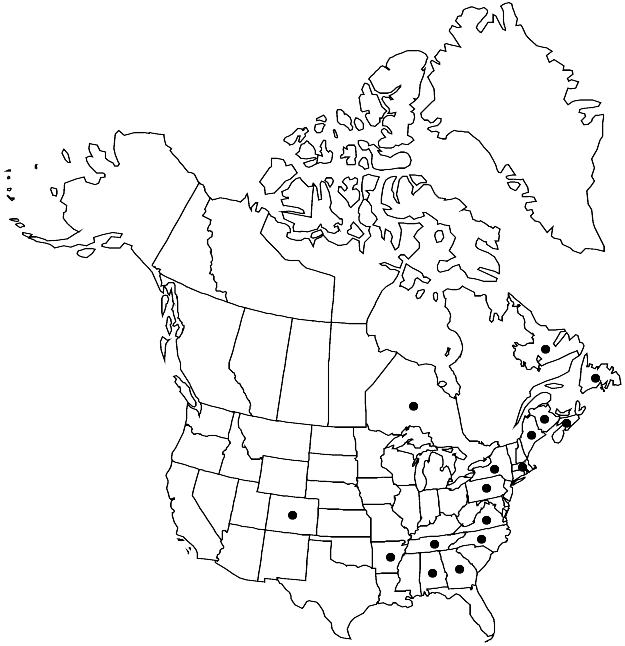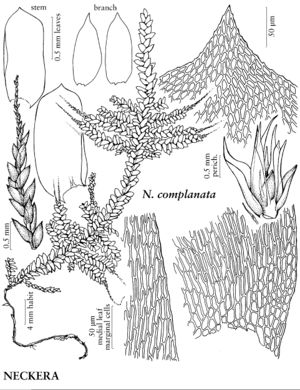Neckera complanata
Muscol. Germ., 576. 1833.
Plants 3.5–4 cm. Stems with branches common, attenuate, flagelliform; paraphyllia present, rare. Stem leaves (central) oblong, flat, 2.5–3 × 1.2–1.5 mm; margins entire proximally, slightly serrulate in apex; apex rounded-apiculate; costa double, short; alar cells oblong to short-quadrate; basal laminal cells linear to irregularly rectangular, 5–10 × 1–2 µm; distal medial cells long-rhomboidal, 24–60 × 4–6 µm; apical cells irregularly rhomboidal, 13–18(–24) × 4–6 µm. Sexual condition dioicous. Seta 0.7–1.2 cm. Capsule exserted.
Habitat: Trunks of trees, humus, cliffs, overhanging ledges, shaded vertical sandstone, limestone boulders, wet rock of mixed forests
Elevation: low to moderate elevations (100-500 m)
Distribution

N.B., Nfld. and Labr., N.S., Ont., Ala., Ark., Colo., Ga., Maine, Mass., N.Y., N.C., Pa., Tenn., Va., Europe, Asia (China).
Discussion
Neckera complanata is distinguished by the apiculate apex and flat leaves. The basal laminal cells are slightly pitted.
Selected References
None.
